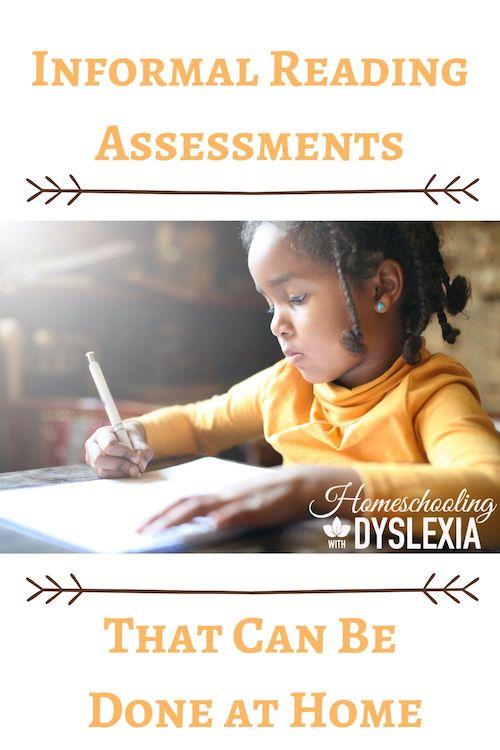Have you ever wondered at what grade level your child is reading? Have you wanted a way to measure your child’s reading progress? Informal reading assessments can be a valuable way to see how your child is progressing. Assessments can also show you areas where you need to review certain concepts.
Fortunately, there are a variety of online assessments available today.

Reading Assessments and the Orton-Gillingham Approach
Monitoring progress is a natural part of every Orton Gillingham reading lesson and is an important reason that the OG approach is so successful. We should be making mini-assessments every day we teach; making note of areas that need more review so that we can individualize our lessons to fit our child’s unique needs.
Informal Reading Assessments to do at Home
Really Great Reading has a variety of screening tools for beginning and advanced decoding, phonemic awareness, and letter knowledge.
Words Their Way Spelling Inventory is a quick spelling test that measures a student’s ability to apply specific patterns and features. This test is designed to be given at the beginning of the year and at the end of each 9 week grading period.
Acadience Reading includes both benchmark and progress monitoring assessments for reading fluency as well as letter naming fluency, nonsense word fluency, and sound fluency.
Qualitative Reading Inventory (QRI-6) is an informal reading inventory that assesses text reading, comprehension, and fluency. This represents an overall picture of how student reading is progressing and is best for periodic assessments rather than frequent monitoring. It can give a snapshot of a student’s “reading level”.
PAST Assessment There are a number of phonemic awareness assessments out there, but one of the best for monitoring the development and automaticity of advanced phonological awareness skills is the PAST by Dr. David Kilpatrick.
On Track Assessments from The Literacy Nest Using the pre and post-tests from The Literacy Nest can help you more accurately target instruction and assess a student’s mastery of OG concepts before moving on in levels. This assessment is good for showing growth and for retargeting instruction for areas of weakness.
San Diego Quick Assessment is a quick and free assessment of reading level.
Have you wanted to assess your child’s reading progress?






0 Comments
Trackbacks/Pingbacks